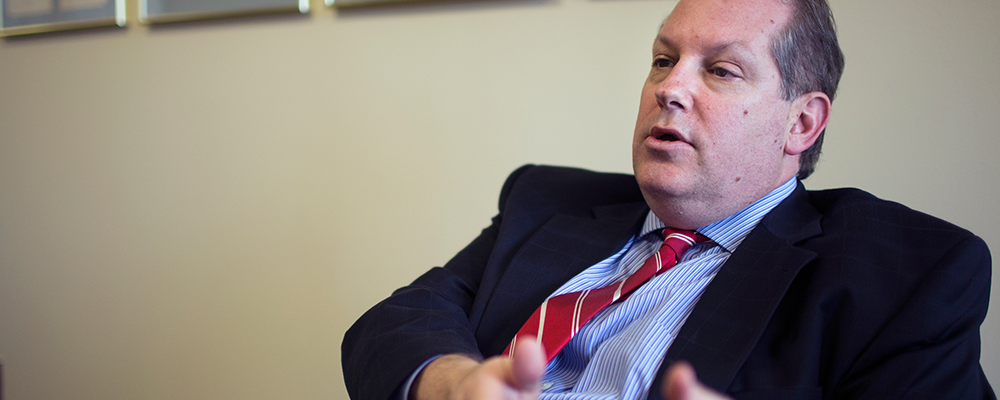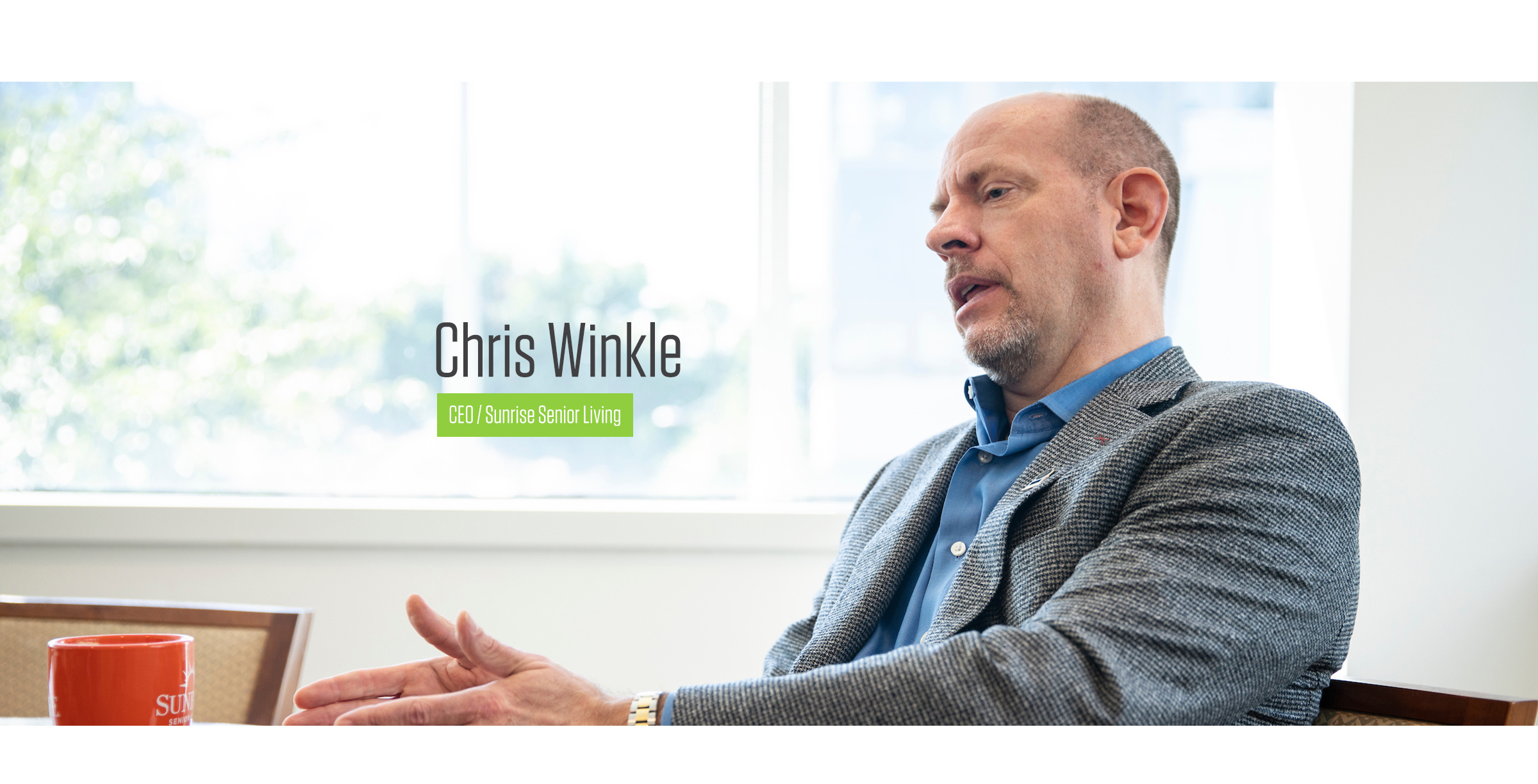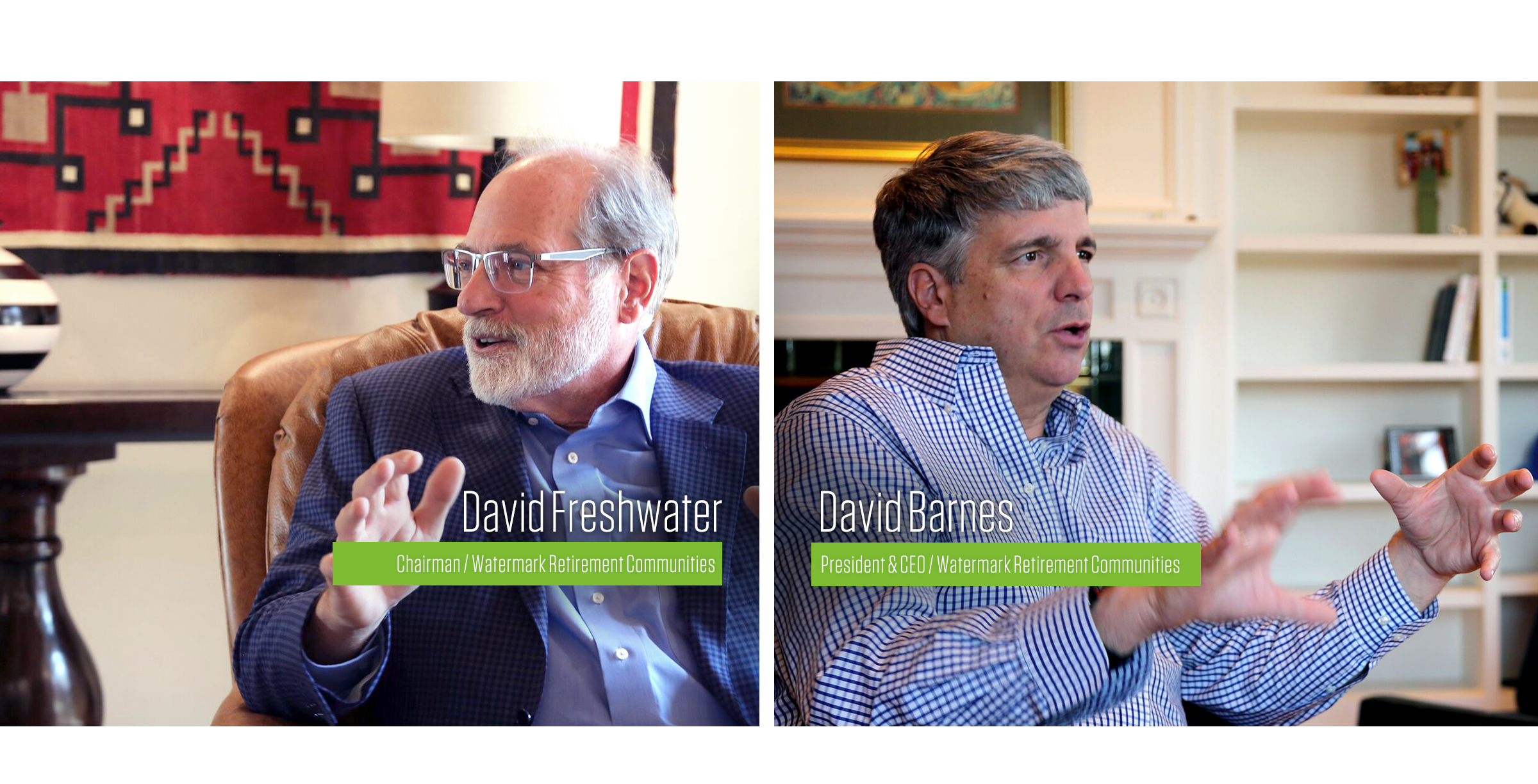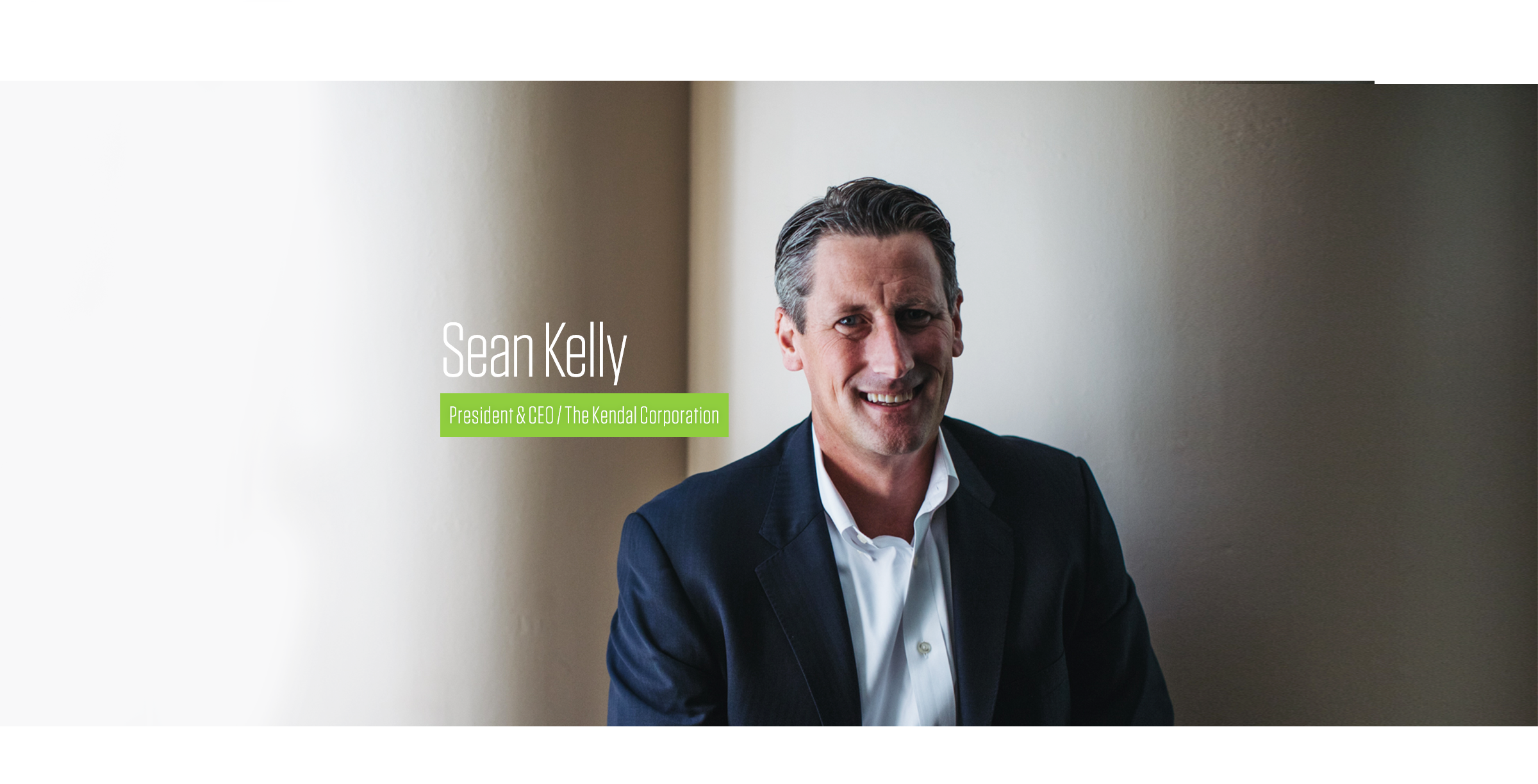Meet David Schless, president of the American Seniors Housing Association, ASHA. Schless has been at the helm of the association since its inception when it initially spun off from a large multifamily housing association, the National Multifamily Housing Council. He has led the industry through rough patches and boom times, all while begin tasked with gaining membership over the years and collecting data to help drive business forward.
We sat down with Schless to hear about some of ASHA’s top priorities on The Hill this year, how the senior housing industry has gained respect over the last three decades, and why it’s important to not try to be all things to all people (that goes for ASHA too!).
Tell me about how ASHA got started.
The discussions first started about creating what became ASHA in 1990. There was an organization called the National Multifamily Housing Council that Trammell Crow and Sam Zell started in the 1970s that included significant multifamily housing developers, operators and investors. By 1990 there were a number of folks who had some apartment holdings and were getting into the senior living business. The industry didn’t really have a voice on Capitol Hill, so they convinced NMHC to start a seniors housing committee.
I was very much at the right place at the right time. I had been with the National Association for Senior Living Industries (NASLI), a group that started in the 1980s that represented a lot of different kinds of businesses that were interested in seniors. A big piece of that was housing, and one of their first presidents was Bob Kramer.
It was not a good time in the industry. The early 90s was a time of new construction, some of it really poorly conceived, and the understanding of who would move into these communities was really not there. NMHC basically said to me, we think this makes sense to get this started and if it doesn’t, we will help you find a job with Lincoln Properties or one of our apartment companies. So it was a no-lose proposition for me.
How would you say the industry is different from when you guys started to today? What’s the biggest difference?
The industry is much more professional. When we started ASHA in 1991, there was almost no data at all. I always remember this: we were trying to collect basic revenue and expense data, and some other items, but some people literally couldn’t fill the survey out. There were others who wouldn’t share their data because they thought they had the Colonel’s secret recipe.
The State of Seniors Housing [report] was the first effort to really try and collect data. In the early 90s, there was a widespread belief that you could not be profitable in the senior living business, and there were plenty of reasons to have that belief. We were able to convince a number of successful owners and operators—John Erickson from Erickson Living, Chuck Lytle from Leisure Care, Bill Colson with Holiday Retirement, the Roskamps with the Freedom Group, Bill Sheriff from American Retirement Corporation—to help us with some case studies. We did some case studies that had financials in them and began to dispel the myth that it was an inherently unprofitable business.
In the early 90s, there was a widespread belief that you could not be profitable in the senior living business, and there were plenty of reasons to have that belief…..We did some case studies that had financials in them and began to dispel the myth.
Would you say the industry has more respect today?
Oh absolutely. The depth of talent is night and day to where it was 25 years ago, there’s no question about that. It is an industry now that is respected. People are still cautious about it because it’s complicated, and there are a lot of moving parts. If you mentioned investing in senior living to most commercial real estate investors in 1991, the vast majority of them would have no appetite at all. You’ve absolutely seen that change.
What are some of your top priorities on The Hill?
In many respects the work that we do on the Hill is an ongoing process. It’s building relationships. Certainly, the expectation is that in the next Congress, there’s a very decent chance that you’ll see some major tax reform. We have always been interested and involved in tax policy as it relates to the resident and as it relates to the real estate, so that’s an area where again we have a lot of expertise. We work with a lot of other organizations that are very attentive to this. A major tax bill presents both opportunities and potential problems, so that’s an area with a lot of work being done behind the scenes right now. This year, we’re trying to stop the expiration of the medical expense deduction for seniors, which really impacts our residents. Certainly at the top of our list has been a desire to ensure that the industry regulation is at the state level.
Is keeping it at the state level realistic long-term?
Long-term it may or may not be. It may depend, and certainly to the extent there’s a significant amount of federal money flowing into the business, as is the case with skilled nursing, you could make the argument that it becomes tougher to keep federal oversight out of the business. Right now it is still predominantly private and best regulated at the state level.
Do you think that’ll ever happen?
I don’t know. I think there’s a lot of people, particularly in the skilled nursing business, who believe that doing to the senior living business what has happened to the skilled business would be a terrible thing. I’ve always been a very big proponent of third party independent accreditation. I believe there is a lot to learn from the hospitals. I think as a general rule, most of the states have done a very good job. Where the industry at the state level could probably benefit from some work would be in those few states where you have licensure categories that are very broad to include both purpose-built, professionally operated properties and six-bed board and care homes. These are the states that frankly are a concern to me, and thankfully I can only think of a couple like that.
What’s your stance on minimum wage going to $15 and how do you think that’s going to impact providers?
I think there are growing numbers of locales where $15 per hour minimum wage is likely to come and will have a significant impact. I don’t think there’s any question about it. On one hand I think everyone appreciates the desire to lift folks up. When you pass those types of laws it does not just impact the lowest wage workers. There’s a cascading effect, and a significant effect on the payroll expense in these properties. There’s no question. The affordability challenge is a very real issue for the industry and the minimum wage laws will likely cause the biggest challenges to the providers trying to serve the least affluent seniors.
Do you think providers should start preparing now?
The providers that are thoughtful are thinking about it now. Obviously this won’t happen at the federal level, so these changes will take place on a state-by-state basis. If your properties are in very blue states, absolutely you should prepare for this. If your properties are not in blue states you probably could expect some increases in minimum wage, but probably not as dramatic and likely not as quickly.
How do you think the current election will have an impact on senior living? Has it been an interesting election for you?
I don’t even know how to answer that one. It’s been a fascinating election. I’m picking my adjectives carefully… what’s been particularly interesting is the 18- to 20-year-old voters, whether they’re supporters of Bernie Sanders or Donald Trump. You’re seeing things that you haven’t really seen in American politics in a long, long time in terms of that voting bloc. At the end of the day, my biggest concern—and this isn’t a partisan comment—is that I personally think the country needs a party that really cares about business, and I’m less sure that either party cares enough about American business as they should.
Fair. Very nonpartisan of you. I know where you’re coming from but you phrased it well.
At the end of the day I think that is one of the most troubling things that I see. I look at this from the 30,000 foot level.
Leadership
What’s your definition of leadership?
A leader is someone that has the ability to articulate a vision and provide an example of what others can do to advance a cause. It’s funny because I think of Bill Colson when I think of leadership, at least in ASHA’s context. Bill was a really influential member of ASHA, he was one of the founders of the group. He was never a chairman of ASHA and yet in many respects he was a great leader for the industry, because he led by example.
A leader is someone that has the ability to articulate a vision and provide an example of what others can do to advance a cause.
During your time what’s been the biggest challenge ASHA’s faced and how did you overcome it?
One of the most challenging periods for us was when the financial meltdown of 2008 took place. That was a very interesting period because it was the first time I realized that although what we do is very important; we were really at the bottom of the food chain. Somebody’s looking at laying off workers or paying their vendors or whatever, and [as the association] we’re at the bottom of the food chain. We had a stressful period, but at the end of the day, I think the industry performed better than most.
Did you ever have operators calling you at night and asking what is going to happen, are we going to survive?
That period of time impacted the industry differently. If your portfolio was really focused on skilled nursing or memory care or assisted living, there was an impact, but I think there was a much greater impact on the companies that were more focused on serving an independent living customer. Probably no one had more stress than the entrance-fee CCRC providers who had a product that was discretionary and was largely tied to the single-family housing market.
If your business was more on the care side, people needed to move so they moved. If your business was on the discretionary side, you had this period of time where folks just didn’t make decisions, they didn’t move, they were just frozen.
What’s the biggest risk you’ve taken in your career?
I remember when we first started talking about the spin off from NMHC. There’s something very comfortable about being part of a bigger organization. As it turned out for us and for me, we were very fortunate because we had a couple of very entrepreneurial people in the leadership at the time.
Who approached you to spin off?
It was mutual. I think there were reasons for both groups to want to part. The concept always was that NMHC would incubate ASHA and then it would spin off. It was interesting because we had existed for 10 years, so we had a decade’s worth of existence, but we were starting over. All of our money had been commingled with NMHC; it was really a 10-year-old “startup.” I always remember this, we went out and applied for a Staples credit card and we were denied. We got turned down by Staples. Of course, within probably six to eight months, it was clear that ASHA on its own was a totally viable entity.
Staples is tough!
Staples at the time was tough.
It was a shot to your ego, I’m sure.
It was! For all intents and purposes we didn’t exist. We existed for 10 years and then we spun off. There was no bank account. NMHC loaned us $250,000 at 6% which at the time was below market. They were very generous. They’ve been very good friends and partners in the 16 years since we spun off. That felt like a risky move. In hindsight it probably wasn’t.
What’s the best piece of advice you’ve received in your career?
That’s an easy one for me. Our first chairman was a guy by the name of William Elliott, Bill Elliott. He passed away several years ago. Bill had a company called Angeles Housing Concepts, based in Los Angeles. It was a big apartment owner with a portfolio of independent living that’s now part of Capital Senior Living. When we got this started he had been a chairman of NMHC, and he was ASHA’s first chairman.
He was always really adamant about staying focused. He used to tell me, ‘Don’t be all things to all people.’ ASHA has really tried to be focused. We’ve expanded our focus, but at the end of the day we’re not all things for all people; we can’t do that. We’ve really tried to focus on things we can do really well.
Who would you consider to be your mentor and how has that person helped your career?
I have been so fortunate to have had several mentors. I’m sure [American Health Care Association President] Mark Parkinson and [Argentum President] James Balda would say the same thing. These are interesting jobs, because depending on how your organization works, every two years you’re working with a new Chair. The beauty of it for us is that we have had a succession of really strong leadership over a long period of time, and they’re all different. Every single person who’s been chairman has brought something different to the organization and to me. I’ve learned from every one of them.
What about a mentor before you got into senior living?
The person who hired me at NMHC was a guy named Jonathan Kempner. Jonathan was extremely good at what he did. He left NMHC right around the time we spun off and ran the Mortgage Bankers Association for a number of years. I learned a lot from Jonathan.
What’d you learn?
Jonathan’s great strength was he knew the value of the personal relationship. He was on the phone almost all day. He really connected very well with his membership and was remarkably good at picking up the phone. He could pick up the phone and get somebody to write a $50,000 check to sponsor a speaker just like that.
I hear you’re very similar.
Our members have been very generous. We have never had to twist arms, and part of it is that our dues are very reasonable. We’ve tried to provide the members with a really good value at every level of membership. I’m not knocking the trade shows, but I think people appreciate that when they come to our meetings, they’re not going to have somebody trying to sell them carpeting or emergency response systems. Part of the way ASHA works is that because we’re not charging the registration fees, and we don’t have the trade show, there’s a need to be supportive of the research and meeting sponsorships.
Attracting talent to senior housing
Let’s talk about attracting talent to the industry. Say I’m about to graduate college. What would your pitch be to me on why I should work in this industry?
If you got out of school and you had a business background, or health or hospitality, this is an industry that has a tremendous 10, 20, 30 years in front of it. You’re going into an industry that will probably provide you with opportunity from one coast to the other. An opportunity to grow professionally, an opportunity to potentially start your own business. There are a lot of compelling reasons to consider a career [in senior housing]. The challenge the industry has to some extent with someone who comes out of a top business program or hospitality program is that in all likelihood you’re not going to come right out of school and have somebody make you an executive director or general manager. I think one of the challenges the industry has is that there isn’t that obvious [entry level position].
What about starting to reach out to high schools to start developing jobs for these kids after they graduate?
The school that my kids have gone to has a pretty significant service requirement. My daughter has gone through a program at Sunrise, and she’s really excited about working at Sunrise and volunteering. I couldn’t be happier, I’m totally delighted about that. I’ve always felt a responsibility to make sure my kids knew what I did. My kids have been in a lot of senior housing communities over the years. I’ve always thought that was important. For the longest time, trying to tell a little kid that you run an association is meaningless. It was always good because I’d be driving down the road and I’d say, ‘See that building right there? That’s one of my member’s buildings,’ and eventually we’d bring them in.









